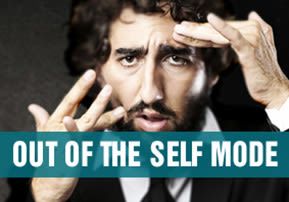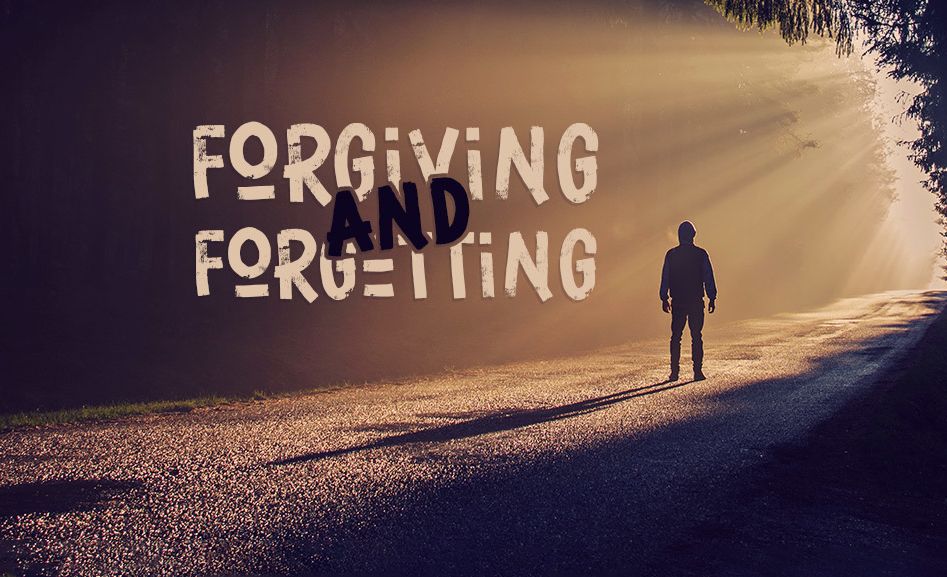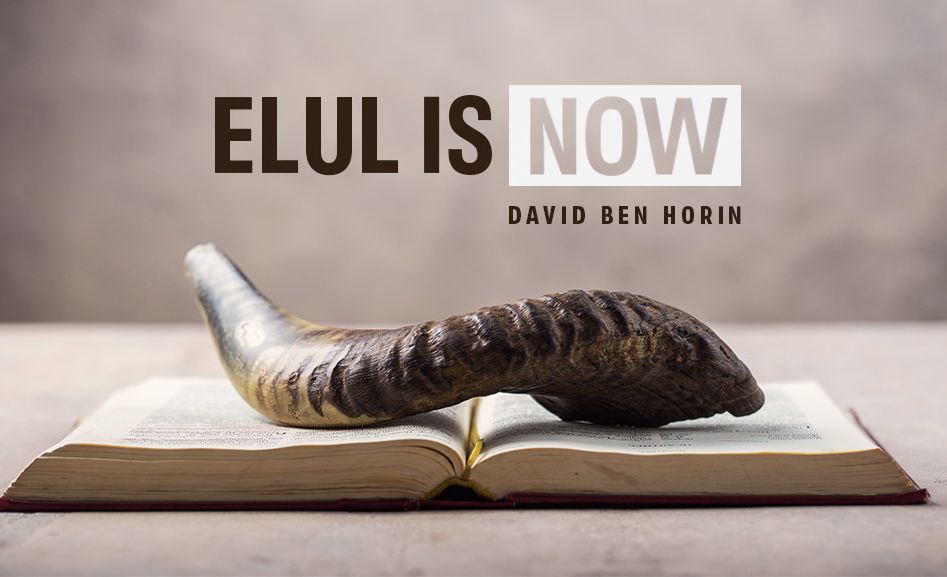
Out of the Self Mode
The Evil Inclination tries to make a person think about himself, whereas Elul teaches us to get out of the self mode and to seek our Loving Father who is ever so close…

Translated by Aaron Yoseph
The main thing is that we shouldn’t have any complaints against Hashem. We have to be humble. The worst thing is when we don’t humble ourselves. “I’m so low down, but I’m starting again. Even if they throw me out, I don’t care. I’m here to honor Hashem. I don’t need to come to anything.” Kelipot – forces of evil – make a person think about himself, and this brings him down. A person thinks that he isn’t succeeding, and he thinks about this all day long – this prevents him from doing what he could do. All day long we can do mitzvot, we can be careful not to transgress, we can think about Hashem. There isn’t just Torah and prayer. Serving Hashem is wherever we are.
There are people who fall, Hashem should have mercy – they’re at the bottom of a deep pit. They’re trapped by their thoughts. The Rebbe tells you – cry out. Even if you’ve already cried out so much and it hasn’t helped – cry out more, for a couple of years. Believe that in the end you’ll definitely get out. Don’t make accounts of how you fell, and why you fell. The main teshuvah is that you’re crying out about your situation now, never mind the past or the future. This isn’t false. You’re in the Rebbe’s cheder now. You’re learning how to pray and confess every day, even if you keep falling. This isn’t like a dog returning to his vomit. This is normal. This is how things go. We cry out  about our situation every day, and still go through what we go through, whatever it is we need to fix.
about our situation every day, and still go through what we go through, whatever it is we need to fix.
Another thought people have – “I can’t do teshuvah, because how can Hashem, Who knows our thoughts, testify about me that I really want to change. I keep going back to how I was!” Do you know how he can testify about you wanting to change? It’s because He has a video of you crying out to Him to save you from this nonsense. He knows about every time you sighed, every time you cried out to Him. The kelipot come to accuse you – “You see – he promised and didn’t keep to his word.” Hashem then plays them the video of your hour of hitbodedut, of you crying out, “Tatti! Save me from this. I’ve gone mad.” With prayer, we start to come into holiness. This is the beginning of real life. This is how we can start to live a good life, a life of joy. A new year – Ah! It will be so good. What about last year? It was all because I didn’t pray enough.
The Rebbe says that as we make our way through our prayers, by not paying attention to the extraneous thoughts, we destroy them. We cut off an arm from this one, a leg from another one. He says that each thought is an entire structure. What does all this mean?
Everything in this world contains an entire structure. The desire to do something comes to a persons mind – this is Keter, Ratzon. He knows what it is he wants – this is Chochmah. He thinks about it further, clarifying it and expanding it in his mind – this is Binah. He starts to really think into it – this is Daat. By connecting to it with his thoughts, he starts to feel how much he wants it, or fears it, or how much he is impressed by it – this is Chesed, Gevurah, and Tifferet, represented by the arms and the torso. When he goes to actually do it, to make it happen – this is Netzach and Hod, represented by the legs. He gets his legs to take him there. When he makes it happen, when he actually connects to it and experiences it, this is Yesod. He then becomes influenced by whatever it is he is doing, he makes it King over him – Malchut.
When a person longs to learn and pray and be close to Hashem, then this process is an entirely holy one. The problem is that it works this way for other things too. The desire for some of the vanities of this world enters a persons head. If he lets it brew there, and thinks about it more, he’ll start to feel how much he wants it. If he connects to it more, he may find himself on his way to carry it out. If he falls all the way and connects to it, he crowns the Other Side as King over himself. This is how a thought develops into an entire structure. The structure is all there in potential. How much of the structure actually develops is up to us.
What we need to do is halt to the process as soon as we can. The thought came to your mind. Fine, you thought something – cut it down straight away so it doesn’t become anything more than a fleeting thought. This is cutting off the head. The Rebbe said that we chop off arms and legs. These are more difficult. We’re already feeling, or even involved in these things. Even so, the Rebbe gives us a way to cut off our connection to them and kill them. During our prayers is the main time for this – since this is when they come to attack us. Tell Hashem what you’re going through. Wherever you are, know that Hashem is with you. You can do something. When you cut off the legs of the Other Side, you get new legs to serve Hashem with. You can cut away your love for vanities, and start to feel love for Hashem. One piece of the prayers with concentration is enough – you’ve done it, you killed him. It may seem a daunting task, but don’t cry, just keep going. They’ll all fall before you.
Elul is all about loving Hashem and trying to get close to Him. A person doesn’t run away, “I do what I can and don’t look at anything else.” This is the Rebbe’s way. There are no falls. If you think you fell, it’s your own pride. Know that there is a way, even when things get hard. “Hashem is with me always. I have a beard and peyote, I keep Shabbat.” In this way we chop off the limbs of the Yetzer Hora, one by one, until eventually we get to the head.
Every confession achieves something, every prayer achieves something. It takes thirty days to become a new person. We change our appearance and we’re a new person. What we need in Elul is to stay afloat, and to not make a big deal of what we go through. You came to pray, you had another extraneous thought – this is your hard work, to ignore it. It won’t hurt you to do this, don’t worry.
This is the way, the derech. With extraneous thoughts there’s no derech. The Yetzer Hora encourages a person to think about himself, about what he’s been through and is going through… The Rebbe teaches us not to think about ourselves at all, to come out of this. The Divine mercy available now in Elul can help us get out of thinking about ourselves. We can come to the real work of Elul – to live for Hashem’s glory – to think about Hashem. This is only possible with teshuvah – with cutting off the arms and legs of the Yetser Hora and with acceptance with love and joy of whatever shaming and embarrassment we need to go through. “I deserve it. It’s better this way.” He isn’t bothered at all by what he goes through; he has no complaints on anyone. In this way, he truly starts to live.
Hashem should help us cut off all their limbs, to bring everything back to Hashem, to holiness. With the Rebbe’s strength we can definitely succeed in this. Let’s do as much as we can in Elul. Hashem should give us the merit of being with the Rebbe for Rosh Hashanah, bring about a year of mercy and forgiveness, and be inscribed for a good life. Amen.







Tell us what you think!
Thank you for your comment!
It will be published after approval by the Editor.